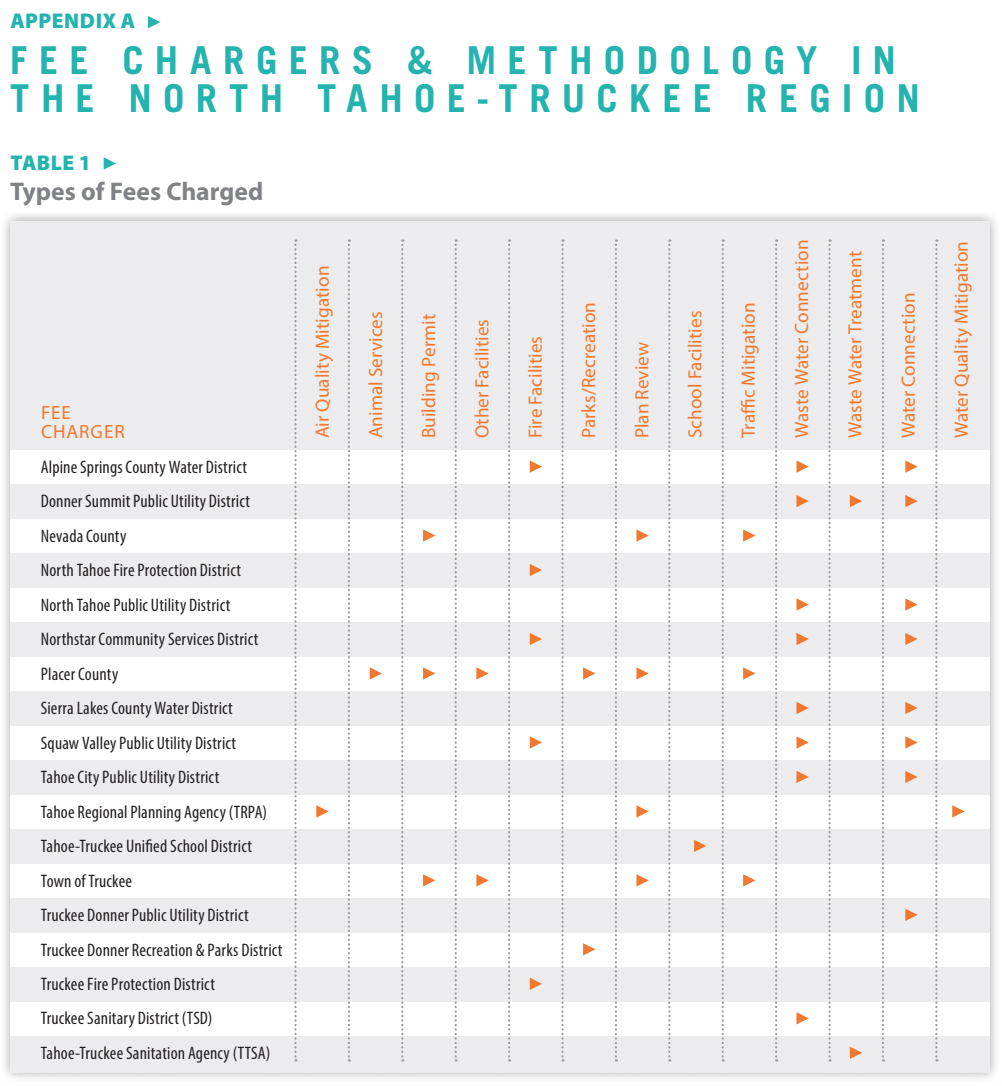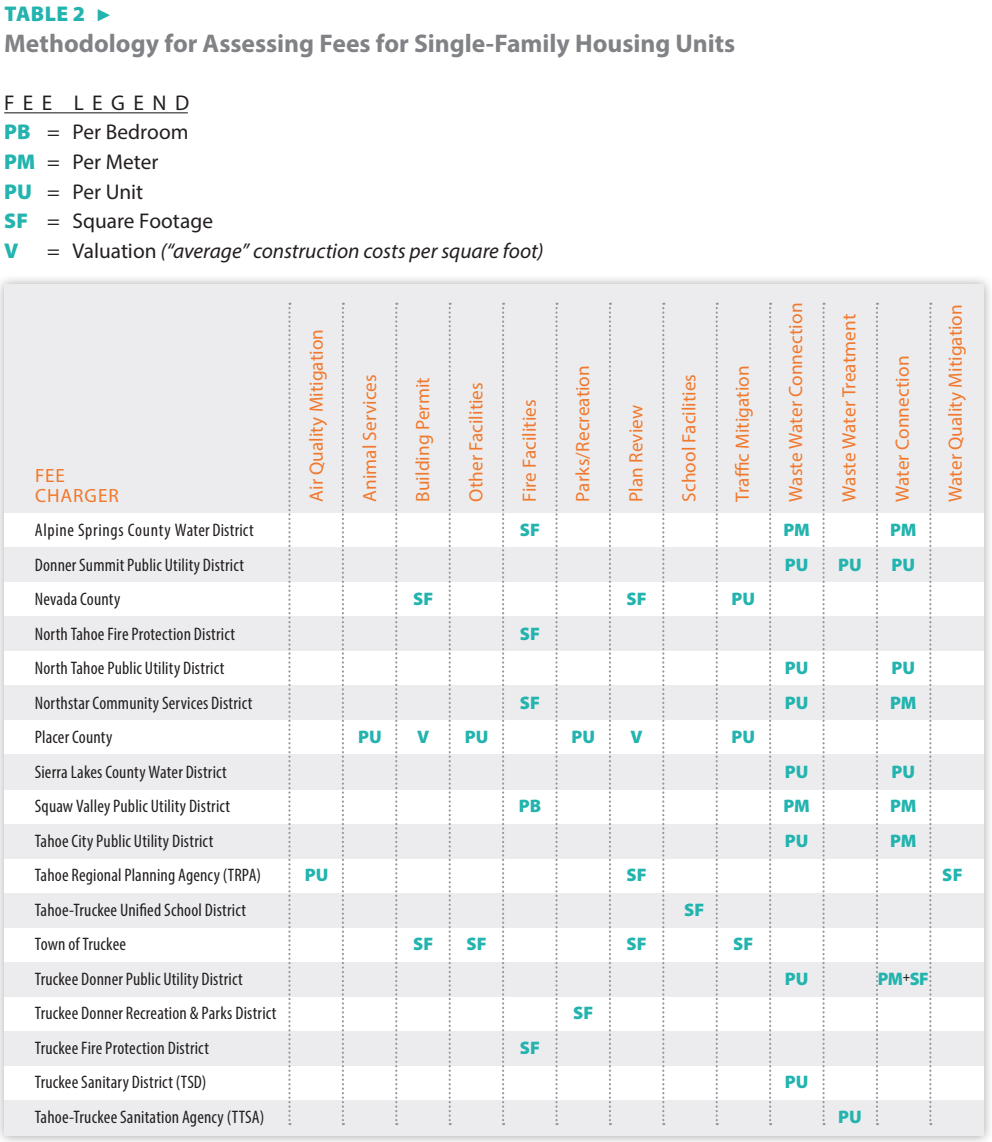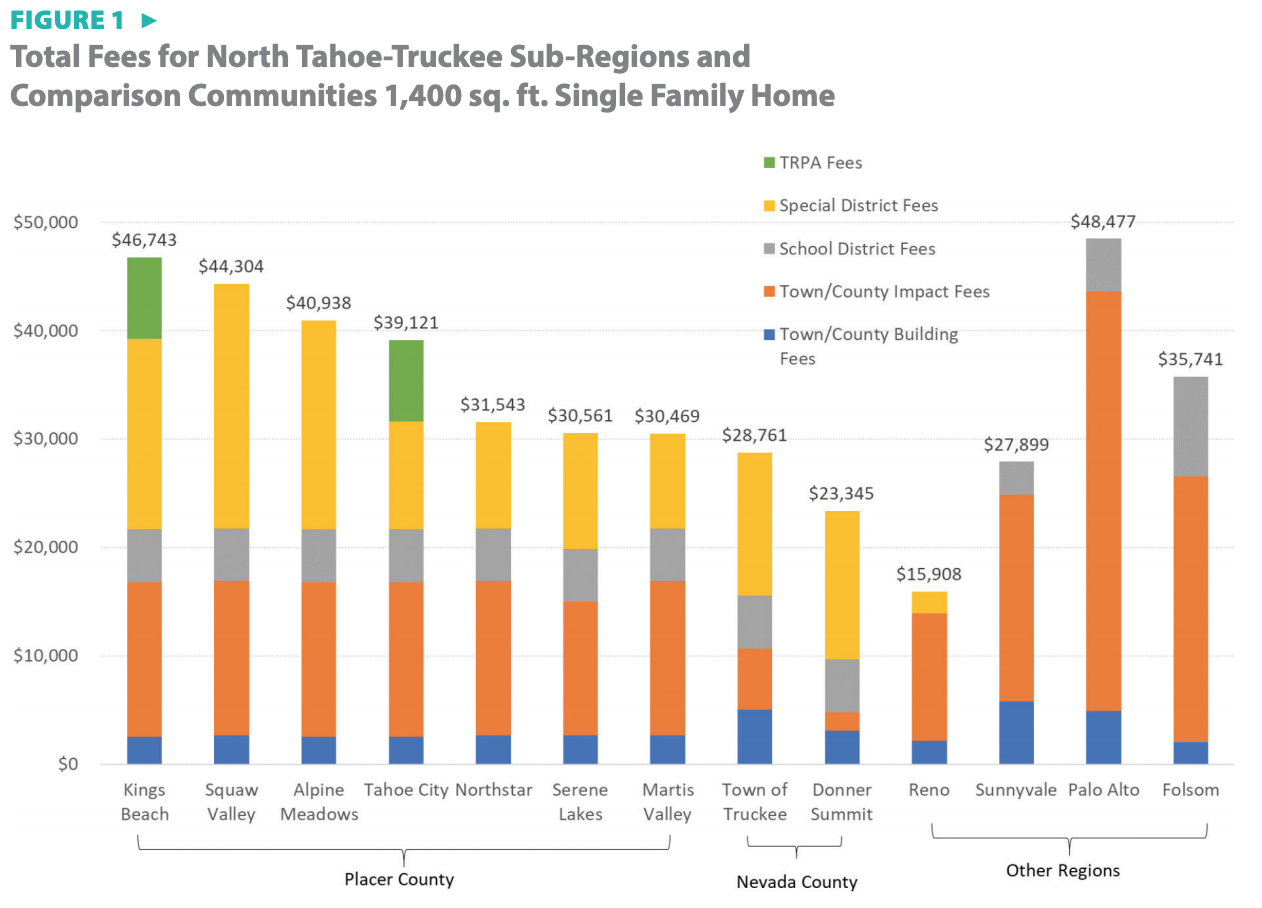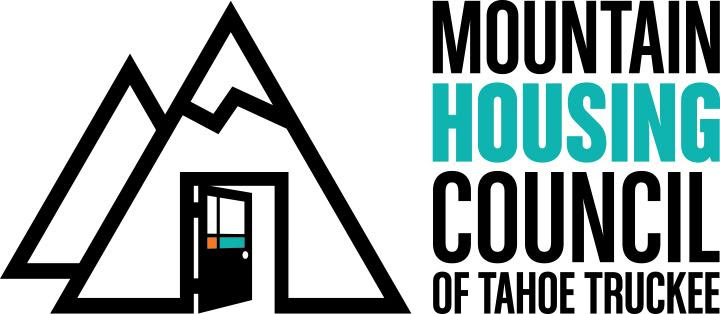Development Impact Fees
Description
Development impact fees are payments imposed on all new residential and commercial construction by local governments and specials districts. These fees are used to cover costs associated with new developments, such as new roads, schools, water services, fire departments, and other infrastructure. Development impact fees are based on a methodology derived from the cost of the facility or service and the size of the development. These fees are typically required to be paid in cash and in advance at the time of the project approval or building permits issuance.
Mountain Housing Council took on the topic of impact fees because of the perception in the region that our local fees are higher than the rest of the state and consequently, a barrier to the production of housing. Additionally, with 18 different special districts and organizations that charge fees in our region (see tables below) all using different methodology for charging fees, another perception in the region is that fee calculations for developers and builders is inconsistent, unpredictable, and complex.
Development Impact Fees 101
What are Development Impact Fees?
Development impact fees are payments imposed on all new residential and commercial construction by local governments and special districts. The fees typically require advanced cash payments and are based on a methodology and calculation derived from the cost of the facility or service, as well as the nature and size of the development.
What are the Fee Payments Used for?
Impact fees pay for the cost of growth’s “impact” on vital services and infrastructure needs such as schools, parks, capital facilities, roads, ambulance, and fire service. The fee payments are reserved to finance improvements offsite of, but to the benefit of, the new development.
National to Regional Perspective
National surveys show California leads the nation in imposing fees on new residential development, with fees averaging $31,014 per standard single-family unit; Maryland is the next highest at $16,557.2 Falling in line with the statewide average, in North Tahoe – Truckee development fees for typical 3-bedroom single-family units range from $24,000 to $47,000, depending on the fee schedules of the service providers where the new development is located.
Read more Development Impact Fee Basics (2018).
Mountain Housing Council’s Recommendations
- Consider charging impacts fees based on a scalable methodology, such as square footage, per fixture, per bedroom, to incentivize the building of smaller, more affordable units and accessory dwelling units (ADUs).
- Consider offering impact and capacity fee deferrals until Certificate of Occupancy to help reduce up front, finance and borrowing costs for developers.
- Update your agency’s Accessory Dwelling Unit (ADU) policy as soon as possible to leverage State-level incentives and look for additional ways to encourage more ADU building in our region.
Learn more about Development Impact Fees in our region in the MHC Fee White Paper.


Learn more about Development Impact Fees in our region in the MHC Fee White Paper.
What we learned
- California leads the nation in imposing fees on new residential development
- Development fees are about 4-5% of the total cost to build a single family home and about 6% for a multi-family complex
- When compared to other regions, fees charged in this region are on par with those charged in Sunnyvale, Palo Alto and Folsom but higher than those in Reno, Nevada (see table below)
- In the North Tahoe-Truckee region, fees for multi-family projects are higher than other comparable regions
- A scalable methodology for determining fee structure has the potential to incentivize the building of smaller units. For example, if fees are charged on a square foot basis rather than a flat fee, the builder ends up paying less per unit in impact fees

Actions Taken to Date
- Nevada County: Adopted fee deferral for ADUs that meet size and affordability deferrals in 2019.
- Town of Truckee: Started charging fees based on square footage methodology in 2019; changed policies to comply with new state ADU laws in 2019.
- TRPA: Adopted new fee schedule that eliminates application fee for multi-family housing units; deed restricted for low to achievable income levels.
- Tahoe-Truckee Sanitation Agency: Changed fee structure from flat fee for sewer connection ($5,000 per unit) to $1,500 per unit plus $1.75 per square foot on 4/10/19. Board also changed ADU policies to comply with State laws.
- Truckee Fire Protection District: Adopted MHC policy paper.

